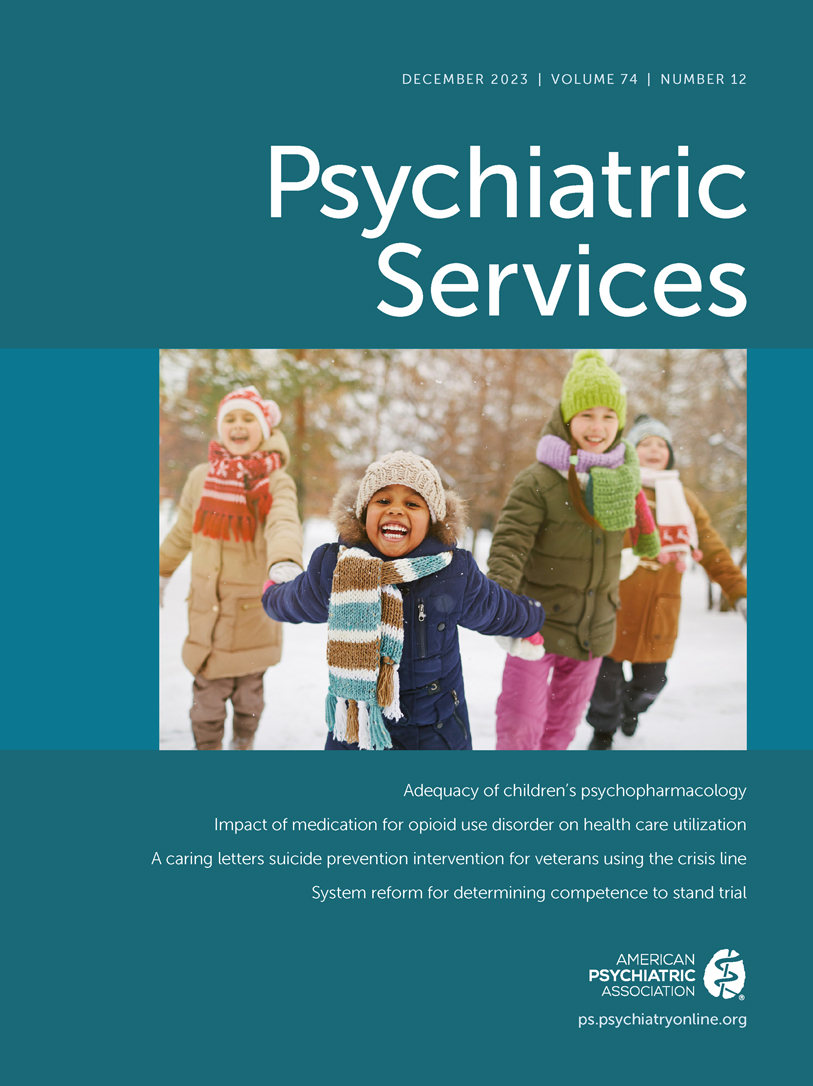Service Use as a Predictor of Change in Mental Health Problems Among Children: A Prospective Cohort Study
Abstract
Objective:
Psychosocial interventions for children’s mental health problems typically differ in several characteristics, such as therapist training, content, motivation for treatment, and extent of comorbid conditions among patients, depending on whether the interventions take place in clinical research studies or in real-life settings. Accordingly, the effects found in research studies may not be generalizable to typical service provision. The authors sought to examine the potential associations between receiving usual care and later psychiatric symptoms, impairment, and potential improvements in social skills.
Methods:
Participants (N=996) drawn from the 2003–2004 birth cohorts in Trondheim, Norway, included children who received usual care and those who did not receive any services (as a control group). The children were assessed with biennial clinical interviews from ages 4 to 14 years. Random intercept, cross-lagged panel models were combined with propensity scoring to adjust for measured time-varying and all unmeasured time-invariant confounders.
Results:
Usual care was not associated with alterations in social skills or impairment due to mental health problems. Similarly, usual care provided to 7- to 12-year-olds did not predict changes in the number of symptoms of psychiatric disorders. However, usual care received at ages 0–4 and 5–6 predicted a slight increase in the number of psychiatric symptoms 2 years later. No significant associations between usual care and improved outcomes were detected.
Conclusions:
These observational findings reveal the need to implement existing evidence-based approaches in usual care and to develop evidence-based approaches to the complex cases often seen in specialty and community care systems.
Access content
To read the fulltext, please use one of the options below to sign in or purchase access.- Personal login
- Institutional Login
- Sign in via OpenAthens
- Register for access
-
Please login/register if you wish to pair your device and check access availability.
Not a subscriber?
PsychiatryOnline subscription options offer access to the DSM-5 library, books, journals, CME, and patient resources. This all-in-one virtual library provides psychiatrists and mental health professionals with key resources for diagnosis, treatment, research, and professional development.
Need more help? PsychiatryOnline Customer Service may be reached by emailing [email protected] or by calling 800-368-5777 (in the U.S.) or 703-907-7322 (outside the U.S.).



